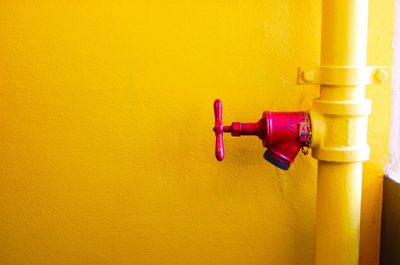
Water damage sneaks into houses quietly, unsuspectingly hiding in plain sight until it is too late. Small indications, such as odd odors or small changes in texture, create suspicions of more devious issues behind the scenes.
If not addressed, these issues escalate to expensive repairs, compromising your home's integrity and indoor air quality. Knowing how to look can help you save time and angst.
This guide explores finer indications of hidden water damage and how to detect them early on before they become larger headaches.
Musty or Wet Odors in Single Rooms
A continuous moldy smell can suggest wetness that's gotten trapped behind walls, under floors, or in cabinets. Areas that are less frequently opened, like guest rooms or basements, are more likely to hide it longer.
The bad scent develops over time as mildew or mold grows on wet insulation or drywall. Vents and windows can spread it to other rooms, making it harder to trace.
If you detect the smell after rain or near plumbing appliances, have a professional come out right away. For instance, the best plumbing services in Denver use infrared cameras and moisture meters to find the source without having to tear up walls.
Bubbling or Cracking Paint on Walls
Another sign of hidden water damage shows up on painted walls. Paint starts to bubble or blister when water pushes its way through plaster or drywall.
Moisture trapped behind surfaces also interferes with adhesion of paint to walls, in such a manner that air or vapor accumulates underneath. In aged buildings, paint layers can completely delaminate, with chips loose to the floor.
Check for bubbling on outside walls, windows, or ceilings. Rain, pipe leaks, or internal condensation in wall cavities can all produce the effect. The fault will usually increase in wet areas with poor ventilation.
Warpage or Buckling of Hardwood Floors
Wood floors are highly sensitive to humidity. Boards pulling upward or separating from each other shows water intrusion below.
Plank with a slight space in between or a bulge along seams can go weeks unnoticed. Foot traffic will cause the boards to creak or shift, adding up to a loss over time. Some areas feel softer or uneven when walked upon.
Leaks from dishwashers, ice makers, or radiant heating systems tend to travel laterally under floors. Water-damaged subfloors, if not detected early enough, will become moldy and will need to be replaced entirely rather than repaired spot-wise.
Stained or Discolored Trim and Baseboards
Water damage initially occurs along baseboards and trim. Yellow, brown, or gray stains may occur, with the paint worn off in irregular areas. As the wood absorbs water, it begins to swell or become soft.
When that occurs, nails become loose, and tiny gaps can form between the wall and floor. Even a tiny stain has the ability to spread if the cause, or leak or dampness beneath, isn't addressed.
You typically notice these marks earlier near carpet perimeters, kitchen kickboards, and bathroom baseboards because they are nearer to sinks and tubs. In wet or moist environments, damaged areas might also have a subtle musty smell.
Abnormally Loose or Shifting Tiles in Bathroom
Bathroom tiles need to stay securely fastened to the mortar. Tiles that feel loose or sound hollow show that moisture is destroying adhesion.
Cracked grouts provide water with a convenient access path. Once water finds its access down below, it expands in the subfloor or wallboard, lifting or shifting tiles.
Over time, the seams between tiles widen and allow increasingly more water to seep in. It's that self-perpetuating cycle that accelerates deterioration and can spread damage far from its perceived origin.
Latent water damage doesn't consider a convenient moment to manifest itself. Tiny details in your house can also be indicative of far greater problems lurking underneath.
Every mark, smell, or shift in texture carries a message worth catching early. If you notice these signs early, contacting a professional could spare you from structural loss and heavy repairs.



(0) comments
We welcome your comments
Log In
Post a comment as Guest
Keep it Clean. Please avoid obscene, vulgar, lewd, racist or sexually-oriented language.
PLEASE TURN OFF YOUR CAPS LOCK.
Don't Threaten. Threats of harming another person will not be tolerated.
Be Truthful. Don't knowingly lie about anyone or anything.
Be Nice. No racism, sexism or any sort of -ism that is degrading to another person.
Be Proactive. Use the 'Report' link on each comment to let us know of abusive posts.
Share with Us. We'd love to hear eyewitness accounts, the history behind an article.